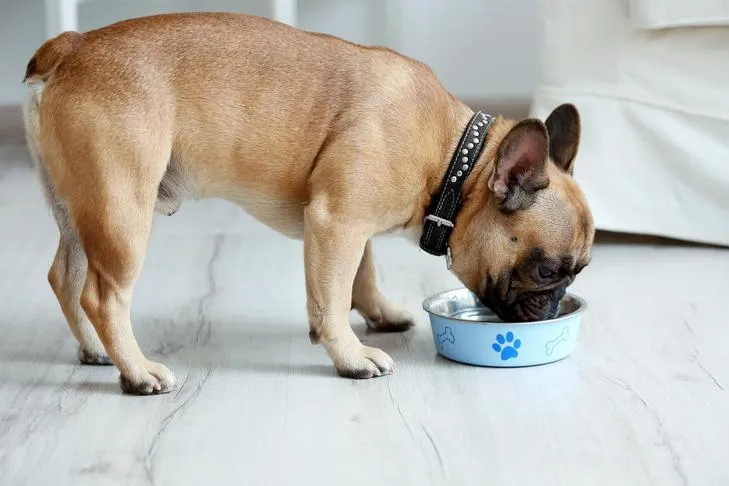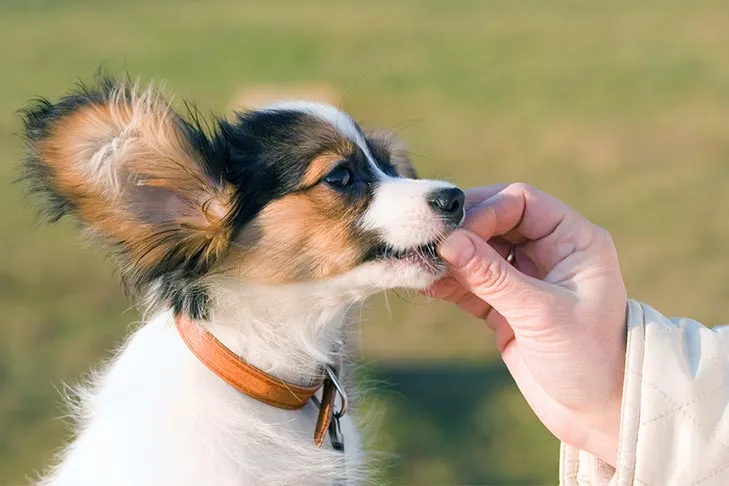Sharing meals with our beloved canine companions is a natural desire for many dog owners. After all, their eager eyes and wagging tails can be incredibly persuasive. However, it’s crucial to understand that not all human foods are safe for dogs. While some can offer beneficial nutrients and make excellent treats, others can be highly toxic or cause severe digestive upset. Knowing what table foods are safe for dogs is essential for their health and well-being. This guide from Dog Care Story will help you navigate the world of human foods, ensuring you can share safe, healthy snacks with your furry friend without worry.
Understanding which everyday items from your kitchen can be a delightful and safe addition to your dog’s diet, and which ones pose a risk, empowers you to make informed decisions. It’s not just about avoiding harmful ingredients, but also about knowing how to properly prepare and portion safe foods to maximize their benefits and prevent any unintended problems. For more insights on encouraging healthy eating habits, you might be interested in reading about what can i give my dog to make her eat.
Safe Human Foods You Can Share with Your Dog
Many common human foods, when prepared correctly and given in moderation, can be wonderful, healthy supplements or treats for your dog. Always remember that these should complement, not replace, a balanced canine diet.
Bread
Small quantities of plain bread are generally safe for dogs, provided it contains no harmful additives like spices or, most importantly, raisins, which are highly toxic. While bread offers no significant nutritional benefits for dogs and can contribute to unwanted calories and carbohydrates, a tiny piece won’t cause harm. Homemade bread without preservatives is a better choice than store-bought varieties, though it’s often best to limit bread altogether. It’s more of an occasional treat than a dietary staple.
Cashews
Cashews can be a safe treat for your dog, but strict moderation is key. These nuts contain beneficial nutrients such as calcium, magnesium, antioxidants, and protein. However, despite being lower in fat than some other nuts, consuming too many cashews can still lead to weight gain or digestive issues. When offering cashews, ensure they are unsalted to avoid excessive sodium intake, which is unhealthy for dogs. A few unsalted cashews make a nice, occasional reward.
Cheese
Most dogs can enjoy cheese in small to moderate amounts as a high-value treat. Unless your dog is among the rare few who are lactose intolerant, cheese can be a fantastic way to reward them or administer medication. Due to its high fat content, it’s advisable to opt for lower-fat varieties such as cottage cheese or mozzarella. Many dog owners also find specific dog-friendly chews made from dried cheese, like Himalayan dog chews, to be excellent, long-lasting options. However, always monitor your dog for any signs of digestive upset after introducing dairy products. If you’re curious about the specific effects of cheese, you might find more details in our article on what does cheese do to a dog.
 All American Dog resting its head on the kitchen table looking at cheese.
All American Dog resting its head on the kitchen table looking at cheese.
Coconut
Coconut, in its various forms, offers several health benefits for dogs. This tropical fruit contains lauric acid, known for its ability to help combat bacteria and viruses. Beyond internal benefits, coconut can also help improve bad breath and soothe certain skin conditions, including hot spots, flea allergies, and general itchy skin. Both coconut milk and coconut oil are also considered safe for dogs. When offering fresh coconut, always ensure the hard, fibrous outer shell is removed to prevent choking hazards or intestinal blockages, as it can be difficult for dogs to digest.
Corn
Corn is a common ingredient found in many commercial dog foods, serving as a good source of carbohydrates, fiber, and antioxidants. While corn kernels are generally safe for dogs, the cob itself presents a significant danger. Corn cobs are indigestible and can easily cause an intestinal blockage, which often requires surgical intervention. Therefore, if you wish to share corn with your dog, always ensure it is fully removed from the cob. Alternatively, you can opt for dog-safe corn-shaped toys as a playful substitute.
Eggs
Fully cooked eggs are an excellent and safe source of protein for dogs. They are packed with essential amino acids and can be particularly helpful for dogs with an upset stomach due to their digestibility. However, it is crucial to never feed raw egg whites, as they contain avidin, an enzyme that can interfere with biotin absorption, potentially leading to a biotin deficiency over time. Always cook eggs thoroughly before offering them to your pet, whether scrambled, boiled, or poached, without any added seasonings or fats.
Fish
Fish offers a wealth of healthy fats and amino acids, providing a notable health boost for your dog. Salmon and sardines are particularly beneficial choices. Salmon is rich in vitamins and protein, while sardines offer easily digestible bones, adding a natural source of calcium. With the exception of small, soft-boned fish like sardines, always meticulously remove all tiny bones from any fish you serve, as they can splinter and cause internal injury. It is imperative to feed only fully cooked and cooled fish, never raw or undercooked, to avoid parasites. Limit fish intake to no more than twice a week to maintain a balanced diet.
 French Bulldog eating from a bowl at home.
French Bulldog eating from a bowl at home.
Ham
While a small piece of ham won’t typically harm your dog, it is far from the healthiest option. Ham is notoriously high in sodium and fat, making it an unsuitable choice for regular feeding. Excessive consumption of salty and fatty foods can lead to various health issues, including pancreatitis or obesity. Therefore, while an occasional, very small, unseasoned piece of cooked ham might be an acceptable treat, it should never become a regular habit. Always trim off any visible fat before offering it to your dog.
Honey
Honey is more than just a sweet treat; it’s a natural powerhouse packed with numerous nutrients, including vitamin A, potassium, calcium, magnesium, copper, and a host of antioxidants. Giving your dog small, controlled amounts of local honey can even help with seasonal allergies. This works by gradually introducing small amounts of local pollen to their system, which can help build up immunity to environmental allergens. Beyond consumption, honey’s natural antibacterial properties make it a beneficial topical treatment for minor burns and superficial cuts on your dog’s skin.
Milk
Dogs can have milk, but it’s essential to proceed with caution and observe your dog closely. Many dogs are lactose intolerant to varying degrees and may not digest milk well, leading to symptoms like diarrhea, vomiting, or gas. While a small amount of milk as an infrequent treat might be fine for some, owners should be acutely aware of the signs of lactose intolerance. Often, sticking to water is the safest and most recommended hydration option. If you do offer milk, always choose plain, unflavored varieties.
Peanut Butter
Peanut butter is a beloved dog treat and an excellent source of protein, healthy fats, vitamins B and E, and niacin. The healthiest option is raw, unsalted peanut butter. However, a critical warning: always read the label carefully to ensure the peanut butter does not contain xylitol. Xylitol is a common artificial sweetener that is highly toxic to dogs and can cause a rapid drop in blood sugar, liver failure, and even death. If you’re looking for other safe options, you might also consider our guidance on what to give my dog to eat.
Peanuts
Unlike certain other nuts like almonds, plain peanuts are safe for dogs to eat in moderation. They are rich in beneficial fats and proteins that can contribute to your dog’s overall health. However, as with cashews, moderation is crucial to prevent your dog from ingesting too much fat, which can potentially lead to pancreatic issues. Furthermore, always avoid salted peanuts, as an excessive amount of salt is difficult for a dog’s kidneys to process and can lead to sodium ion poisoning.
Popcorn
Unsalted, unbuttered, and air-popped popcorn can be an acceptable treat for your dog in moderation. It contains beneficial nutrients such as riboflavin and thiamine, which support eye health and digestion, along with small amounts of iron and protein. The key to safely sharing popcorn is preparation: ensure all kernels are fully popped, as unpopped kernels pose a significant choking hazard and can get stuck in a dog’s teeth or digestive tract. Avoid any added seasonings, butter, or excessive oil.
Pork
Pork is a highly digestible protein source that is packed with essential amino acids, making it a good addition to a dog’s diet. While it contains more calories per pound compared to some other meats, it can be a valuable component for muscle development and energy. Additionally, some pets with sensitivities to other protein sources may find pork to be less likely to cause an allergic reaction. Always serve cooked, plain pork, removing any excess fat, skin, and bones. Bones can splinter and cause internal damage.
 Samoyed puppy laying in the grass outdoors.
Samoyed puppy laying in the grass outdoors.
Quinoa
Quinoa has become a popular ingredient in some high-quality dry dog foods, and for good reason. Its impressive nutritional profile makes it a healthy and often superior alternative to common starches like corn, wheat, and soy, which are frequently used in kibble. Quinoa provides complete protein, essential amino acids, fiber, and various vitamins and minerals. When preparing quinoa for your dog, ensure it is thoroughly cooked and served plain, without any added seasonings or fats.
Salmon
As previously mentioned, fully cooked salmon is an outstanding source of protein, healthy omega-3 fatty acids, and amino acids. These nutrients are vital for promoting healthy joints, supporting brain function, and boosting your dog’s immune system. However, consuming raw or undercooked salmon carries significant risks due to the presence of parasites, which can cause severe illness in dogs, including vomiting, diarrhea, dehydration, and in extreme cases, even death. Always ensure salmon is cooked thoroughly to eliminate these parasites.
Shrimp
A few shrimp given occasionally can be a healthy and delightful treat for your dog, but only under specific conditions. They must be fully cooked, and crucially, the entire shell—including the tail, head, and legs—must be completely removed. Shrimp are rich in antioxidants, vitamin B-12, and phosphorus, while also being commendably low in fat, calories, and carbohydrates. This makes them a lean and nutritious snack, provided all precautions regarding preparation are strictly followed.
Tuna
Dogs can eat tuna, but only in very small amounts and infrequently. Cooked, fresh tuna, in moderation, is an excellent source of omega-3 fatty acids, which are beneficial for promoting heart and eye health. Regarding canned tuna, it contains small amounts of mercury and sodium, both of which should be avoided in excess. A little bit of canned tuna packed in water (not oil) and without any added spices can be an occasional treat, but it should not be a regular part of their diet due to potential heavy metal accumulation.
Turkey
Turkey is a safe and lean protein source for dogs, but proper preparation is key. Always ensure that excess fat and skin are removed from the meat, as these can be difficult to digest and contribute to pancreatitis. It is also vital to check meticulously for any bones, especially poultry bones, which can easily splinter during digestion, leading to dangerous blockages or even tears in the intestines. Furthermore, never feed your dog turkey seasoned with excessive salt, onions, or garlic, as these ingredients are toxic to canines.
Wheat or Grains
Contrary to popular belief, most dogs do not need to be on a grain-free diet, and grains are perfectly fine for them to consume. In fact, grains like wheat and corn are valuable sources of protein, essential fatty acids, and fiber, contributing to a healthy and balanced diet. If your dog has a known allergy to specific grains, then avoiding them is, of course, necessary. However, for the vast majority of dogs, grains are a beneficial component of their diet. Always consult your veterinarian for personalized dietary recommendations based on your dog’s specific health needs.
 Papillon puppy gently taking a treat from a hand.
Papillon puppy gently taking a treat from a hand.
Yogurt
Plain yogurt is a perfectly acceptable and often beneficial snack for many dogs. The active bacteria (probiotics) found in plain yogurt can help strengthen and support a healthy digestive system. However, similar to milk, some dogs may have trouble digesting dairy products and could experience symptoms of lactose intolerance. The best choice is plain, unsweetened yogurt without any added flavors or artificial sweeteners, especially xylitol, which is toxic to dogs. Always introduce new foods slowly and in small quantities to monitor your dog’s reaction.
Important Considerations for Feeding Human Foods
While knowing what table foods are safe for dogs is crucial, it’s equally important to consider how you offer them. Always introduce any new food slowly and in small quantities to observe your dog’s reaction. Even safe foods can cause digestive upset if given in large amounts or if your dog has an individual sensitivity. Always avoid adding seasonings, spices, salt, sugar, onions, garlic, or excessive fats to any food you plan to share with your dog. These can be harmful or even toxic.
Conclusion
Sharing safe human foods with your dog can be a wonderful way to provide them with tasty and sometimes nutritious treats, strengthening the bond you share. This comprehensive guide has covered many common table foods that are generally safe for dogs, offering you peace of mind and clarity. However, the golden rule remains: moderation is key, and proper preparation is paramount. Always be vigilant about portion sizes and how your dog reacts to new foods. If you ever have doubts about a particular food or observe any adverse reactions, consulting your veterinarian is always the best course of action. They can provide tailored advice based on your dog’s unique health profile and dietary needs. For foods to steer clear of, especially fruits, remember to consult guides like what fruits should a dog not eat. Ensure your dog’s diet remains balanced and healthy.
